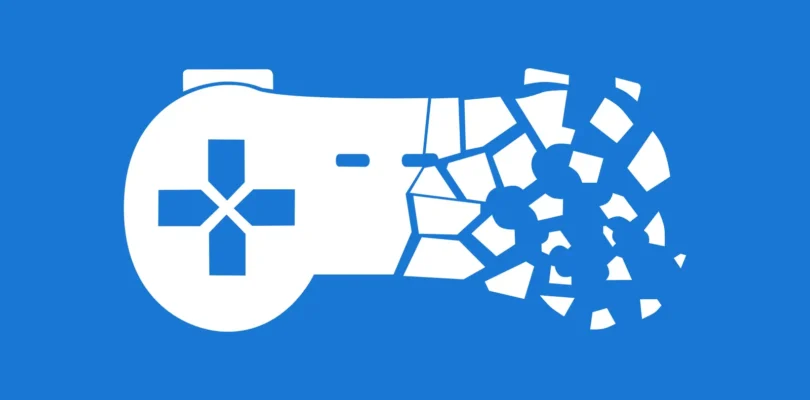Petitions and other protest mechanisms in gaming are a dime a dozen, but one movement has been garnering a lot of attention as of late: the Stop Killing Games petition, created by Youtuber Ross Scott, has a very specific—and very rational—goal in mind.
In actuality, the entire movement was launched in 2024 because Ubisoft followed through on its promise to completely shut down The Crew’s server (more on that below), but it would only adopt a more formal, structured tone in 2025 and, in a recent turn of events, garnered 1 million signatures, hitting a major milestone in its campaign. The move brought attention from well-known media outlets like Rock Paper Shotgun, GameRant and Engadget, to name a few.
But in order to understand the movement in its totality, context, as with all things, is key. So we did a small dive over the movement’s history, the reasoning behind it, what it hopes to achieve and how close they are from this goal.
Note: Affiliate Disclosure: At PlayRatedGames, our content is made possible by our readers. If you purchase a game or product through links on our site, we may receive a small commission. This support helps us continue publishing honest, independent reviews. Our recommendations are based solely on what we believe offers real value to players — never influenced by affiliate partnerships.
Table of Contents
- What is the Stop Killing Games petition
- How did it start
- What does the petition hope to achieve
- Stop Killing Games: milestones attained so far
- Does the petition face any opposition?
- Final thoughts: when a game dies, a library burns
What is the Stop Killing Games petition
The Stop Killing Games (SKG) petition is a consumer-driven campaign that aims to redefine the concept of digital game ownership by challenging publishers’ unilateral power to render titles completely inaccessible.
In essence, the movement demands that once players purchase a game, they retain the right to play it even after official support ends—whether through offline modes or community‑run private servers. SKG isn’t about forcing indefinite support or punishing studios; it’s focused on establishing minimum guarantees that protect players’ investments.
At the heart of the issue is growing frustration with digital licensing models, which differ from buying a physical disc and allow rights holders to simply pull the plug, “killing” the game. SKG argues this amounts to planned obsolescence: by May 2025, an estimated 68% of server‑dependent titles were already inaccessible or at high risk of being shut down.
How did it start
The spark that ignited the petition was Ubisoft’s shutdown of the online servers for The Crew. After leaving digital storefronts in December 2023, its servers went offline on March 31, 2024, making even the single‑player campaign unplayable. Ross Scott, known for machinima-like content “Freeman’s Mind”, likened the move to silent‑film studios destroying their own film reels to recover silver, emphasizing the cultural loss.
In response, Scott officially launched Stop Killing Games in early 2024 as a consumer‑rights movement rather than a one‑off protest. The campaign gained real momentum in June 2025, when fellow influencer PewDiePie publicly endorsed it—what Scott called the “tipping point” needed to break out of niche circles and reach a mainstream audience.
What does the petition hope to achieve
At its core, the petition is pressuring lawmakers in the United Kingdom and the European Union to pass regulations that outlaw permanently disabling games once sold. Key proposals include:
- Mandatory offline modes—ensuring core content remains playable without publisher servers.
- Private‑server options—requiring publishers to release tools or code so communities can keep games alive after official support ends.
- Legal reclassification—treating digital games as durable goods rather than disposable services.
The petition is intentionally broad to attract widespread support and leave technical specifics to experts—lawyers, engineers, and regulators—during the legislative process. The goal isn’t endless support but a guaranteed minimum playability period or the right to migrate a title to alternative servers.
Stop Killing Games: milestones attained so far
In the UK, the petition launched in April 2024 and surpassed 100,000 signatures by July 2, 2025—enough to trigger a formal debate in Parliament. During discussions, the government acknowledged that existing consumer‑protection laws could, in theory, be leveraged if publishers mislead players about ongoing support.
Meanwhile, the European Citizens’ Initiative wing of the petition hit 1 million signatures on July 3, 2025—up from around 450,000 before PewDiePie’s endorsement gave it a viral boost. The collection period runs until July 31, 2025; once closed, member states must validate the signatures before sending the proposal to the European Commission for public hearings and potential legislation.
Does the petition face any opposition?
Yes. And they’re exactly who you would expect.
Major industry players have pushed back hard against the SKG proposals. Video Games Europe, the trade association representing big publishers across the EU, insists that the decision to discontinue online services is a “multi‑faceted” one driven by commercial viability and legal obligations.
In a statement posted on their website, they argue that mandatory offline modes or private‑server tooling would be “prohibitively expensive to create” and expose rights holders to cybersecurity and content‑moderation liabilities. They also warn that many titles are built from the ground up as online‑only experiences, and forcing these changes would “curtail developer choice” by imposing one‑size‑fits‑all rules on an inherently diverse industry pcgamer.com.
Behind the scenes, publishers like Activision Blizzard, EA, Bandai Namco and Embracer Group—represented by Video Games Europe—echo similar concerns. They point out that running community servers isn’t just about spinning up code: it requires ongoing maintenance, moderation against illegal or harmful content, and adherence to data‑protection laws.
According to industry lobbyists, these extra layers of complexity could ultimately drain budgets meant for new game development, stifling innovation rather than preserving it. That said, they’ve signaled a willingness to discuss practical safeguards with lawmakers—highlighting a preference for flexible frameworks over hard mandates
Final thoughts: when a game dies, a library burns
The Stop Killing Games petition taps into something deeper than platform politics or fandom outrage—it’s about agency, and that’s why this is a movement worth paying attention to, regardless of where you stand about it.
At its heart, the petition argues that when you buy a game, you’re not renting a temporary experience bound to a server’s uptime. You’re making a cultural investment, one that should outlive marketing cycles and quarterly revenue reports. And while some publishers argue that preserving access is too expensive or legally complex, it’s hard to overlook how those same companies often bake online dependencies into single-player content without offering players a plan B.
Think of it like this: libraries have an actual upkeep cost. There’s the obtaining of books, the staff to study and organize it, restoration of older pieces and so on and so forth…should we simply stop taking care of that as well, just because a certain book is “too old” to be sold? Personally, I think not.
Still, the opposition isn’t without merit. Game architecture isn’t modular like a light switch, and spinning up community servers or offline alternatives does come with real costs—technical, legal, even ethical. From protecting user data to moderating hate speech on unsupervised private servers, the challenges go beyond “just let the fans host it.” And frankly, not every online-only title is built with legacy preservation in mind. But that’s exactly why this debate needs to happen now, not later—so that future games are designed with at least a minimal end-of-life plan.
Furthermore, there is always a possibility that this might backfire: we’ve all seen the trend of increasing base prices in gaming without proper reason and, well, this might be the “reason” the industry’s corporate overlords may seize on and co-opt for their own justification.
At the end of the day, Stop Killing Games isn’t demanding the impossible. It’s asking for basic respect toward digital ownership, and suggesting that maybe—just maybe—turning off a game forever shouldn’t be the industry’s default setting. Whether you agree or not, it’s a conversation worth having.
How about you? After reading through our article, what’s your take on all of this? Make sure to tell us your opinion in the comments! And if you would like to see more stories like this, make sure to check out our Lists and Rants pages for more opinion-based material! We also have a podcast that you should listen to 😉


